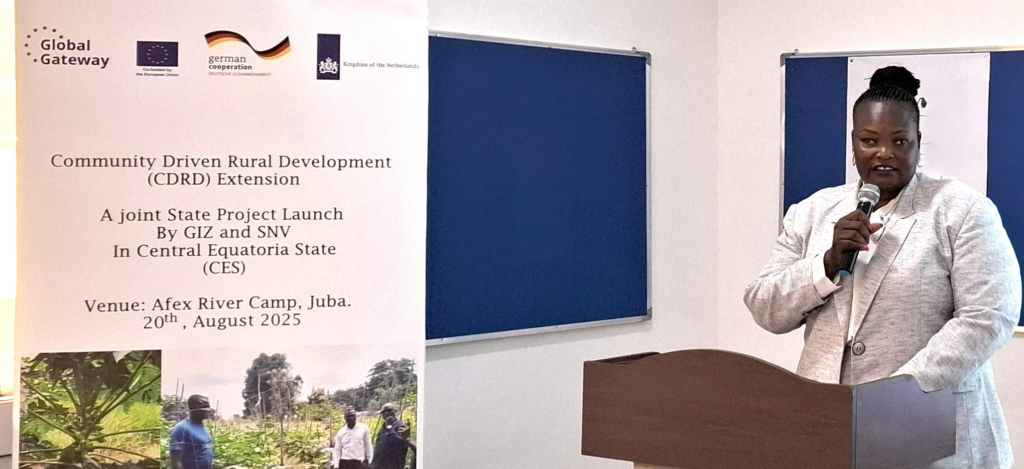The Community-Driven Rural Development (CDRD) project will expand into Juba County in Central Equatoria State, its funders announced Wednesday.
The governments of Germany and the Netherlands, along with the European Union, announced the extension in a press release. The expansion aims to support the development of competitive, sustainable and climate-resilient agricultural value chains.
Under a joint co-financing mechanism using a “Team Europe” approach, the 48 million euro ($52 million) CDRD project supports 27,500 households in eight counties across Western Bahr el-Ghazal, Western, Central and Eastern Equatoria states.
The project is part of the broader Green and Resilient Rural Economy (GRRE) program funded by the EU and is implemented in synergy with the GRACE project in Central Equatoria, Western Equatoria, Northern Bahr el-Ghazal and Lakes states. It is managed by the U.N. Food and Agriculture Organization (FAO), the World Food Programme (WFP) and the International Trade Centre (ITC).
The project focuses on improving production, access to services and markets, and the empowerment of women and youth. It also aims to protect and sustainably manage natural resources on a landscape scale to secure the basis of the rural economy.
Central Equatoria State Minister for Agriculture, Environment and Forestry Lily Kapuki presided over the launch of the extension in Juba. She underlined the importance of improved food and nutrition security for smallholder households in South Sudan.
The launch also served as a platform to expand the Central Equatoria State Steering Committee of the EU Green Resilient Economy Action, which includes the CDRD and GRACE projects.
The food security and rural development manager at the EU Delegation, Vittoria Longato, said the initiative was jointly developed with the German Federal Ministry for Economic Cooperation and Development (BMZ) and the Embassy of the Kingdom of the Netherlands, co-funders of the CDRD project’s first phase.
The CDRD project is implemented by the Deutsche Gesellschaft für Internationale Zusammenarbeit (GIZ) in cooperation with the Netherlands Development Organisation (SNV) and other partners. In South Sudan, GIZ works on behalf of BMZ.
Germany supports the long-term development of South Sudan in fields including local governance, rural development, sustainable agri-food systems, water and sanitation, peace and reconciliation, gender equality and sexual and gender-based violence prevention.
The EU is an economic and political partnership of 27 European countries. It acts globally to promote sustainable development of societies, the environment and economies.




